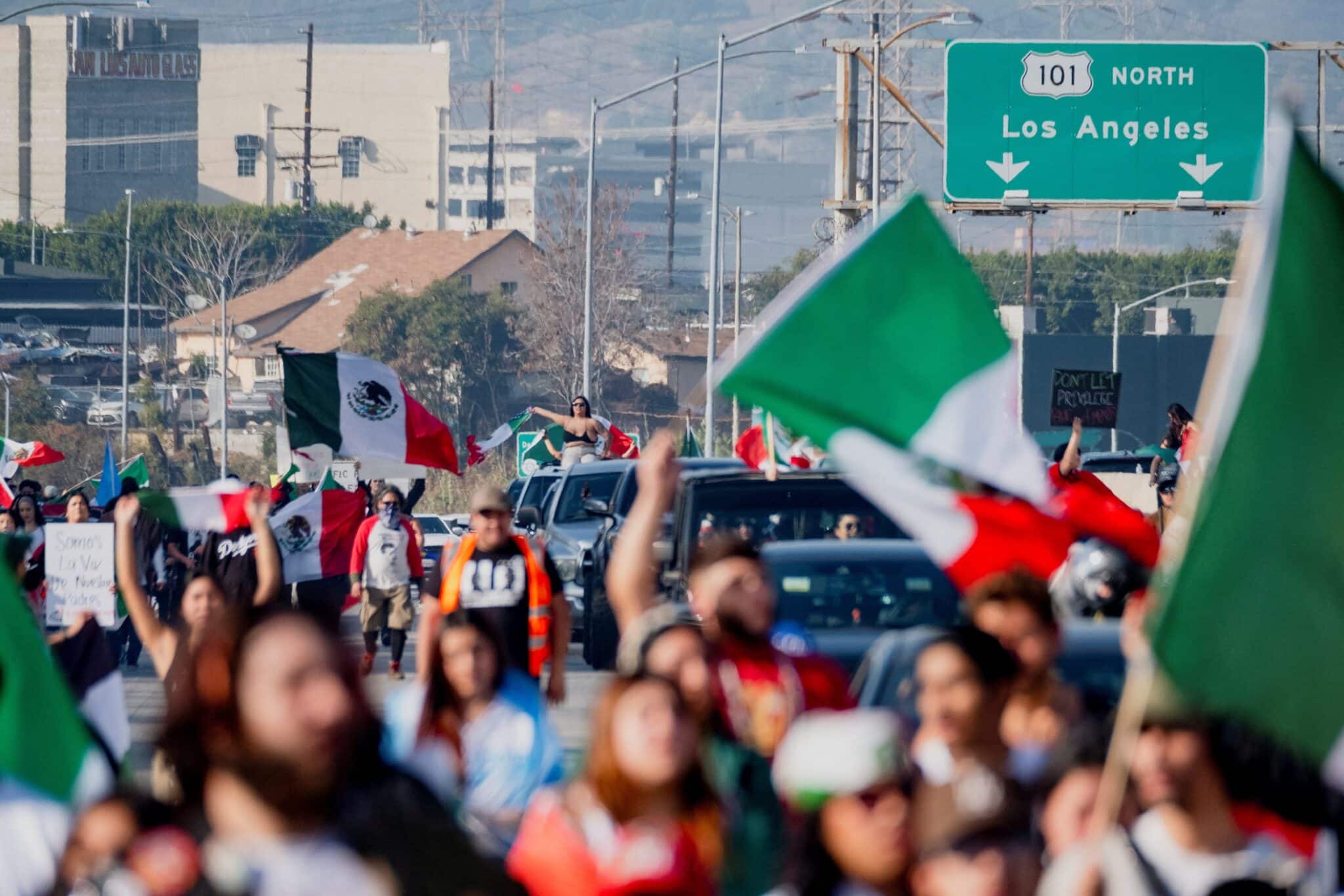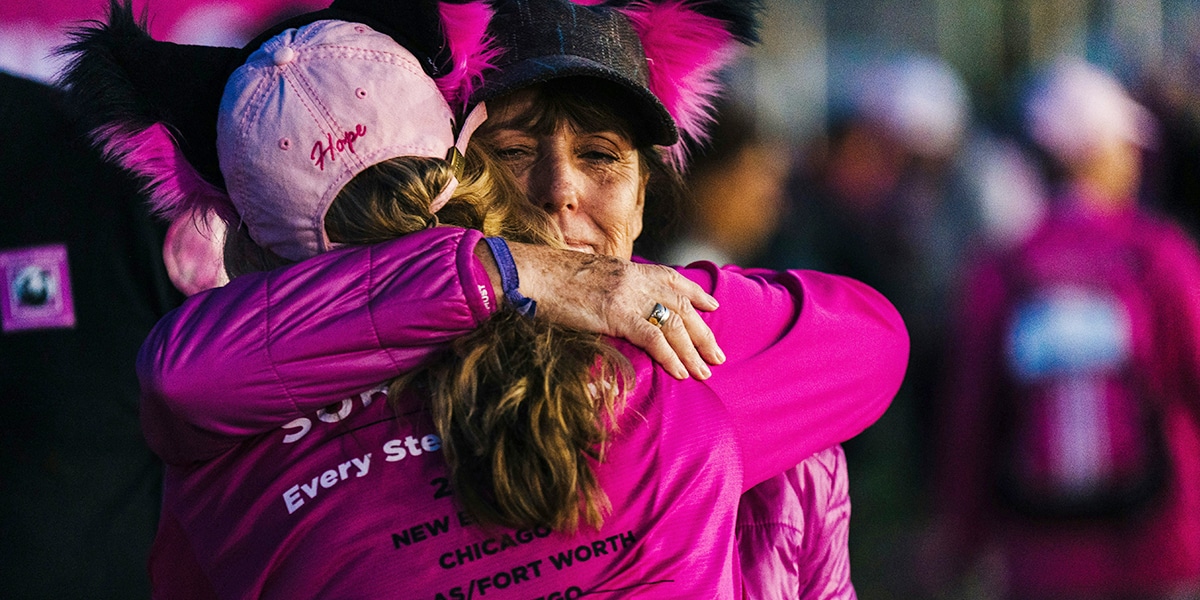ARLINGTON, Va. (CNS) — While standing outside the prison that housed Virginia’s execution chamber, Gov. Ralph Northam signed legislation abolishing the death penalty in the state March 24.
Legislators and anti-death penalty advocates joined the signing ceremony outside Greensville Correctional Center in Jarratt, where 101 people have been executed since 1991.
“Over our 400-year history, Virginia has executed more than 1,300 people,” said Northam. “(Today) we join 22 other states in saying the government will not take a life, the government will no longer execute people.”
Bishop Michael F. Burbidge of Arlington and Bishop Barry C. Knestout of Richmond, Virginia, welcomed the new law. “We embrace this hope-filled new beginning,” they said in a joint statement March 24.
Archbishop Paul S. Coakley of Oklahoma City, chairman of the U.S. Conference of Catholic Bishops’ Committee on Domestic Justice and Human Development, also welcomed the repeal, calling it “a bold step toward a culture of life.” He, too, noted that Virginia became the 23rd state to abolish the death penalty, “and I urge all other states and the federal government to do the same,” he said.
In their statement, Bishops Burbidge and Knestout quoted the pope from his latest encyclical, “Fratelli Tutti, on Fraternity and Social Friendship”: “As Pope Francis states, ‘The firm rejection of the death penalty shows to what extent it is possible to recognize the inalienable dignity of every human being and to accept that he or she has a place in this universe.'”
“Through our Virginia Catholic Conference, we supported this historic legislation as it progressed through the General Assembly because all human life is sacred,” they said. “We are grateful to those who worked to make this a reality.”
“Our dioceses also continue our prayers for families of victims of horrific crimes and renew our commitment to provide for their pastoral support. We stand ready to accompany them in their journey to find healing and peace.”
During the ceremony in Jarratt, many people praised the Catholic conference’s advocacy, including bill-sponsor state Sen. Scott A. Surovell, a Democrat from Fairfax, Virginia, who thanked the conference and several priests for their work. “I can’t tell you how much that has helped,” he said.
Earlier this year, Catholics welcomed the news that both houses of the legislature passed bills abolishing capital punishment.
“It’s an incredible moment for Virginia,” said Bob More, a parishioner of St. John Neumann Church in Reston, “to finally uphold the dignity of every person including those who offended against society in a serious way, and to recognize the death penalty has not been applied in a fair and defensible manner, and that people need an opportunity for rehabilitation and repentance.”
More, who previously participated in evening prayer vigils to end executions, made the comments in an interview with the Arlington Catholic Herald, the diocesan newspaper.
“The end of Virginia’s death penalty signifies the growing consensus that capital punishment is a flawed and morally bankrupt system that violates the sanctity of human life,” said Krisanne Vaillancourt Murphy, executive director of Catholic Mobilizing Network.
“From the pews to the pulpit, many Virginia Catholics were persistent advocates who paved the way for the commonwealth’s abolition of the death penalty,” she said in a March 24 statement.
A news release from the network said the modern U.S. death penalty system is “a direct byproduct” of the legacy of racial violence — slavery, lynching and systemic racism — in Virginia as the former “home of the Confederacy.”
“We are hopeful that Virginia’s repeal will signal to other Southern states that the death penalty is an immoral and racist relic,” said Vaillancourt Murphy. “By removing the most broken and punitive of punishments, we can refocus on cultivating more just, equitable and life-affirming responses to harm.”
By Zoey Maraist | Catholic News Service







News & Commentary
Governor signs death penalty repeal at site of 101 executions since 1991
ARLINGTON, Va. (CNS) — While standing outside the prison that housed Virginia’s execution chamber, Gov. Ralph Northam signed legislation abolishing the death penalty in the state March 24.
Legislators and anti-death penalty advocates joined the signing ceremony outside Greensville Correctional Center in Jarratt, where 101 people have been executed since 1991.
“Over our 400-year history, Virginia has executed more than 1,300 people,” said Northam. “(Today) we join 22 other states in saying the government will not take a life, the government will no longer execute people.”
Bishop Michael F. Burbidge of Arlington and Bishop Barry C. Knestout of Richmond, Virginia, welcomed the new law. “We embrace this hope-filled new beginning,” they said in a joint statement March 24.
Archbishop Paul S. Coakley of Oklahoma City, chairman of the U.S. Conference of Catholic Bishops’ Committee on Domestic Justice and Human Development, also welcomed the repeal, calling it “a bold step toward a culture of life.” He, too, noted that Virginia became the 23rd state to abolish the death penalty, “and I urge all other states and the federal government to do the same,” he said.
In their statement, Bishops Burbidge and Knestout quoted the pope from his latest encyclical, “Fratelli Tutti, on Fraternity and Social Friendship”: “As Pope Francis states, ‘The firm rejection of the death penalty shows to what extent it is possible to recognize the inalienable dignity of every human being and to accept that he or she has a place in this universe.'”
“Through our Virginia Catholic Conference, we supported this historic legislation as it progressed through the General Assembly because all human life is sacred,” they said. “We are grateful to those who worked to make this a reality.”
“Our dioceses also continue our prayers for families of victims of horrific crimes and renew our commitment to provide for their pastoral support. We stand ready to accompany them in their journey to find healing and peace.”
During the ceremony in Jarratt, many people praised the Catholic conference’s advocacy, including bill-sponsor state Sen. Scott A. Surovell, a Democrat from Fairfax, Virginia, who thanked the conference and several priests for their work. “I can’t tell you how much that has helped,” he said.
Earlier this year, Catholics welcomed the news that both houses of the legislature passed bills abolishing capital punishment.
“It’s an incredible moment for Virginia,” said Bob More, a parishioner of St. John Neumann Church in Reston, “to finally uphold the dignity of every person including those who offended against society in a serious way, and to recognize the death penalty has not been applied in a fair and defensible manner, and that people need an opportunity for rehabilitation and repentance.”
More, who previously participated in evening prayer vigils to end executions, made the comments in an interview with the Arlington Catholic Herald, the diocesan newspaper.
“The end of Virginia’s death penalty signifies the growing consensus that capital punishment is a flawed and morally bankrupt system that violates the sanctity of human life,” said Krisanne Vaillancourt Murphy, executive director of Catholic Mobilizing Network.
“From the pews to the pulpit, many Virginia Catholics were persistent advocates who paved the way for the commonwealth’s abolition of the death penalty,” she said in a March 24 statement.
A news release from the network said the modern U.S. death penalty system is “a direct byproduct” of the legacy of racial violence — slavery, lynching and systemic racism — in Virginia as the former “home of the Confederacy.”
“We are hopeful that Virginia’s repeal will signal to other Southern states that the death penalty is an immoral and racist relic,” said Vaillancourt Murphy. “By removing the most broken and punitive of punishments, we can refocus on cultivating more just, equitable and life-affirming responses to harm.”
By Zoey Maraist | Catholic News Service